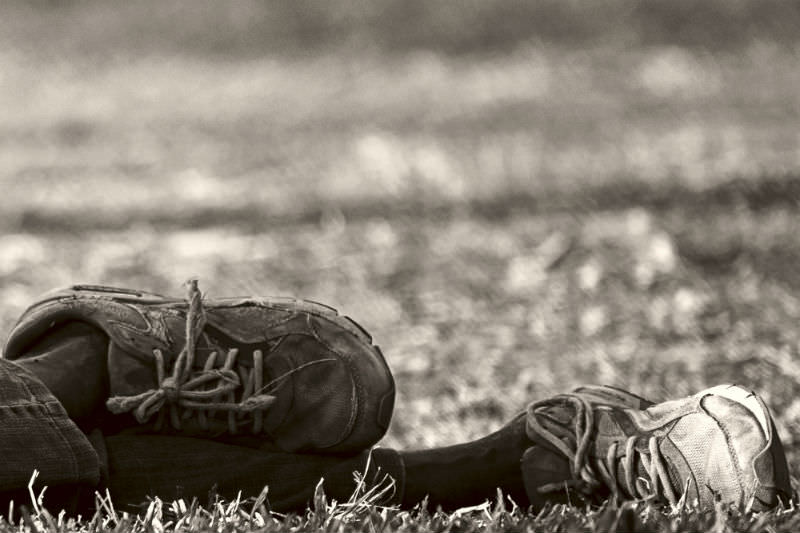Extract from Eureka Street
- Barry Gittins
- 11 October 2019
I have known times in life when three-minute noodles were the only option I could afford to eat for weeks. When I strung along payment plans for bills to ensure the rent got paid. When I couldn't buy petrol for a car, let alone have it repaired, or replace bald tyres.
 But
my relative poverty at those times was nothing compared to those with
no dietary options, no roof over their heads, or clothes or heating or
cooling, or a place where they can be safe. Those who lack what we see
as 'basics' are largely invisible to our political masters or dismissed
as dealt with by Newstart and other means of starvation.
But
my relative poverty at those times was nothing compared to those with
no dietary options, no roof over their heads, or clothes or heating or
cooling, or a place where they can be safe. Those who lack what we see
as 'basics' are largely invisible to our political masters or dismissed
as dealt with by Newstart and other means of starvation.It's a vote winner, this business of punishing poor people for being poor. Poverty is seen as their fault, and agitation over their plight by godbotherers and social workers as damned cheeky.
Lucius Annaeus Seneca (known to his mates as Seneca the Younger) famously declared that 'it is not the man who has too little, but the man who craves more, that is poor'. Well, I'm inclined to bracket that with Marie Antoinette's call for cake, and Malcolm Fraser's truncated quoting of George Bernard Shaw, 'Life wasn't meant to be easy…'
It sounds grand and noble, and so remarkably unaware for a member of the empire that gobbled up much of the known world of its day while riding a fiscal pony named slavery. It is probably worth remembering that Seneca was a satirist and dramatist, as well as a philosopher and statesman.
Poverty goes well beyond questions of mindsets or attitudes to Maslovian imperatives of shelter, sustenance, inclusion and meaning, which are hard to come by if you are skint.
If the opposite of poor is dirty stinking rich, do you care to hazard a guess as to where the richest of the rich live, per capita? If you nominated Trump's US of A, that postmodern Rome, you'd be right. It's number one on a list floating around business realms, followed top ten-wise by China, Japan, Germany, Canada, France, the UK, Hong Kong, Italy and Switzerland.
Oz is not without its plutocrats and billionaires, of course. The average net worth (2017-18) for Australian households is a mere $1 million, pumped up to that height by 'rising property values'. But Aussies with harbour views across multiple properties are relatively rare compared to the battlers.
ACOSS says there are more than 13 per cent of us — more than three million Australians — living below the poverty line; that includes 739,000 children. One in eight adult Australians, and one in six Aussie kids, are mired in poverty. Those of us doing it the toughest 'unsurprisingly [are] those relying on government allowance payments such as Youth Allowance and Newstart'.
What's the impact when you don't have a home? When you are hungry and thirsty, when you can't afford medical and dental care? How are you viewed, treated or neglected by those with cash? As John Falzon once said, Australians living below the poverty line are made to feel 'hopeless, lazy and stupid'.
We live, still, in a democracy. In the face of abysmal policies we can pressure elected governments to change the status quo. This year's Anti-Poverty Week is stressing the need to 'Raise the rate' by 'increasing the rate of Newstart and associated allowances by $75 a week'. There are a million of us that rely on these paltry, inadequate payments, doled out begrudgingly, without being topped up adequately for more than a quarter of a century.
Francis Bacon is credited with the observation that 'money is like muck — not good unless it be spread'. Raising the rate would be a good start in not making our neighbours feel lazy, hopeless and stupid.
If our PM's theological name dropping rings true, as with his 2008 maiden speech, his life is guided by the life, teaching and leading of Jesus Christ. That unemployed Jewish tradie turned rabble rouser made this apocalyptic observation: 'Woe to you who are rich, for you have received your consolation. Woe to you who are full now, for you will be hungry. Woe to you who are laughing now, for you will mourn and weep.'
Who would Jesus screw over?
No comments:
Post a Comment